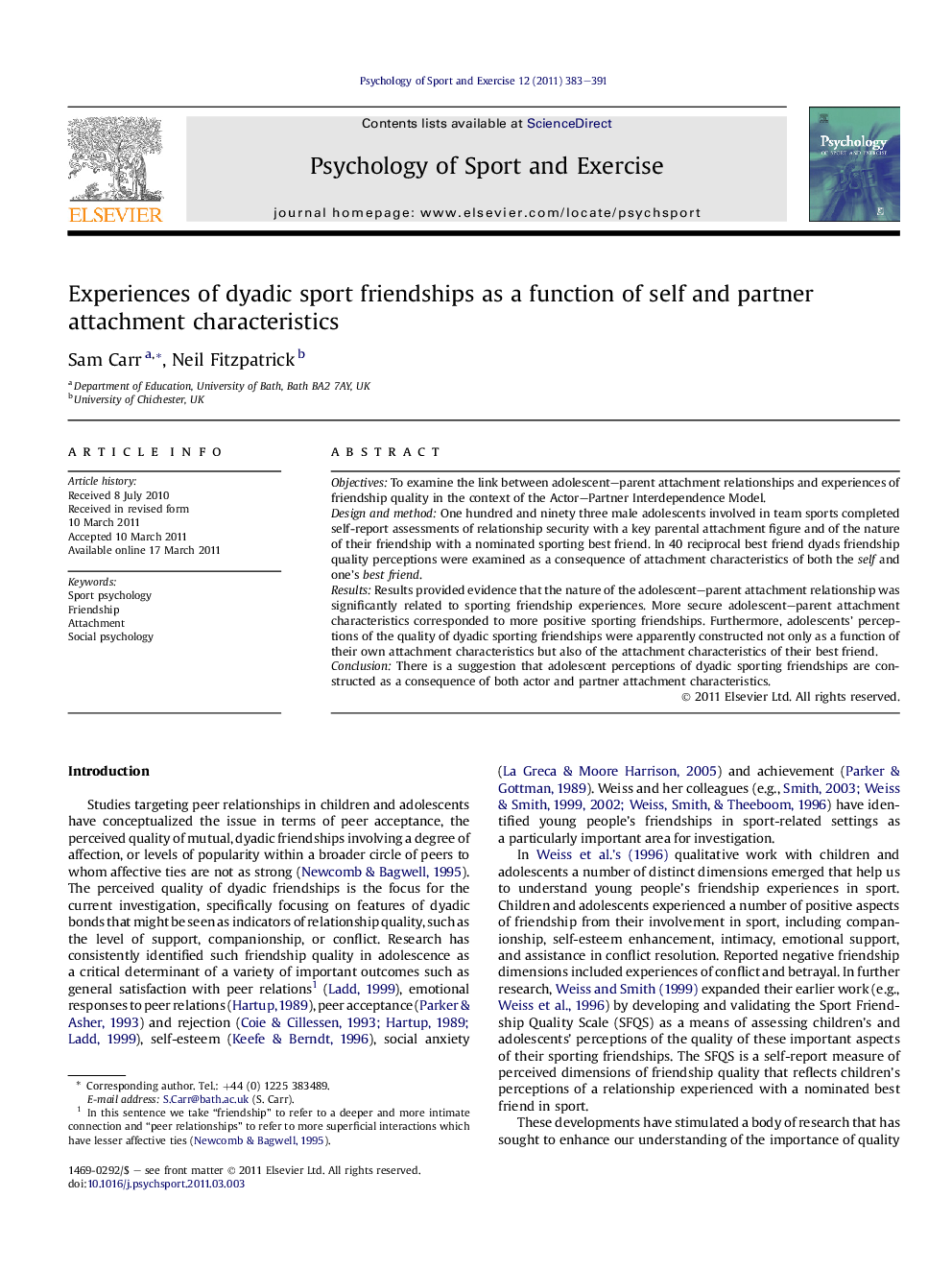| Article ID | Journal | Published Year | Pages | File Type |
|---|---|---|---|---|
| 894422 | Psychology of Sport and Exercise | 2011 | 9 Pages |
ObjectivesTo examine the link between adolescent–parent attachment relationships and experiences of friendship quality in the context of the Actor–Partner Interdependence Model.Design and methodOne hundred and ninety three male adolescents involved in team sports completed self-report assessments of relationship security with a key parental attachment figure and of the nature of their friendship with a nominated sporting best friend. In 40 reciprocal best friend dyads friendship quality perceptions were examined as a consequence of attachment characteristics of both the self and one’s best friend.ResultsResults provided evidence that the nature of the adolescent–parent attachment relationship was significantly related to sporting friendship experiences. More secure adolescent–parent attachment characteristics corresponded to more positive sporting friendships. Furthermore, adolescents’ perceptions of the quality of dyadic sporting friendships were apparently constructed not only as a function of their own attachment characteristics but also of the attachment characteristics of their best friend.ConclusionThere is a suggestion that adolescent perceptions of dyadic sporting friendships are constructed as a consequence of both actor and partner attachment characteristics.
► Attachment security with key caregivers predicts friendship quality in the context of team sports. ► Attachment security influences friends’ perceptions of relationships. ► Attachment security also influences individuals' own perceptions of relationships.
